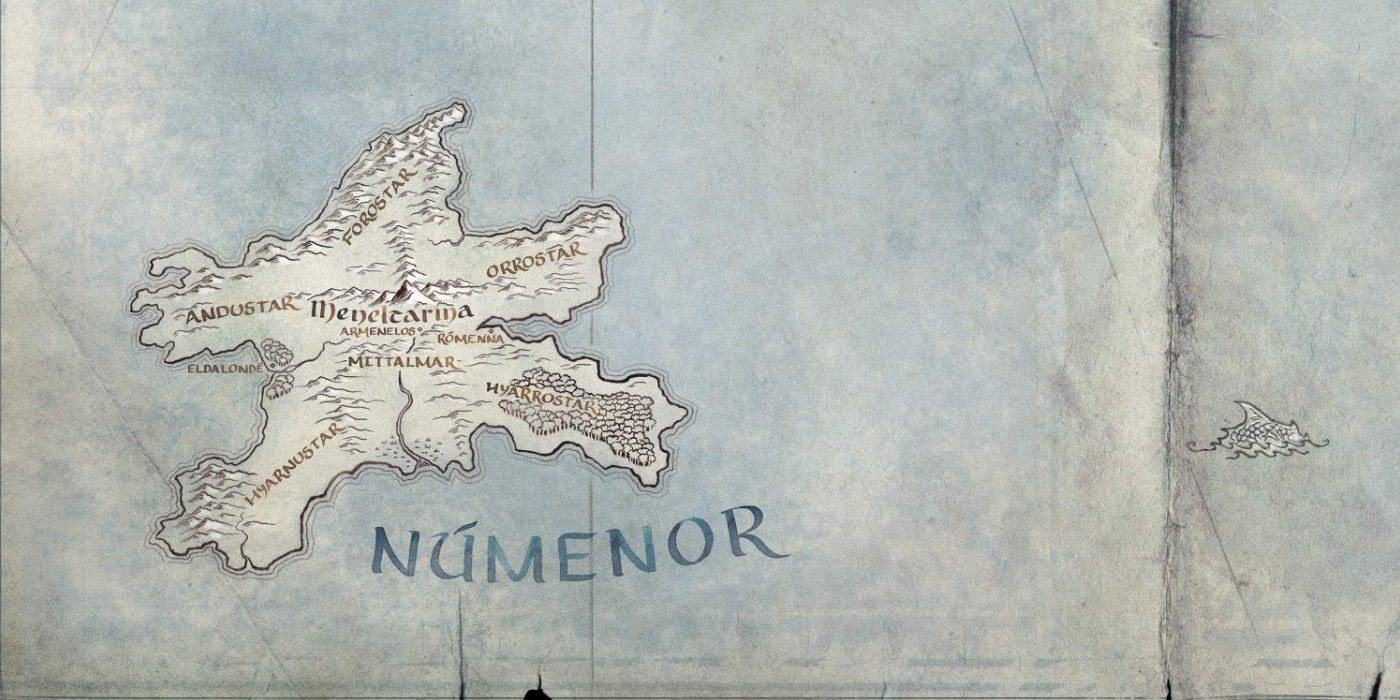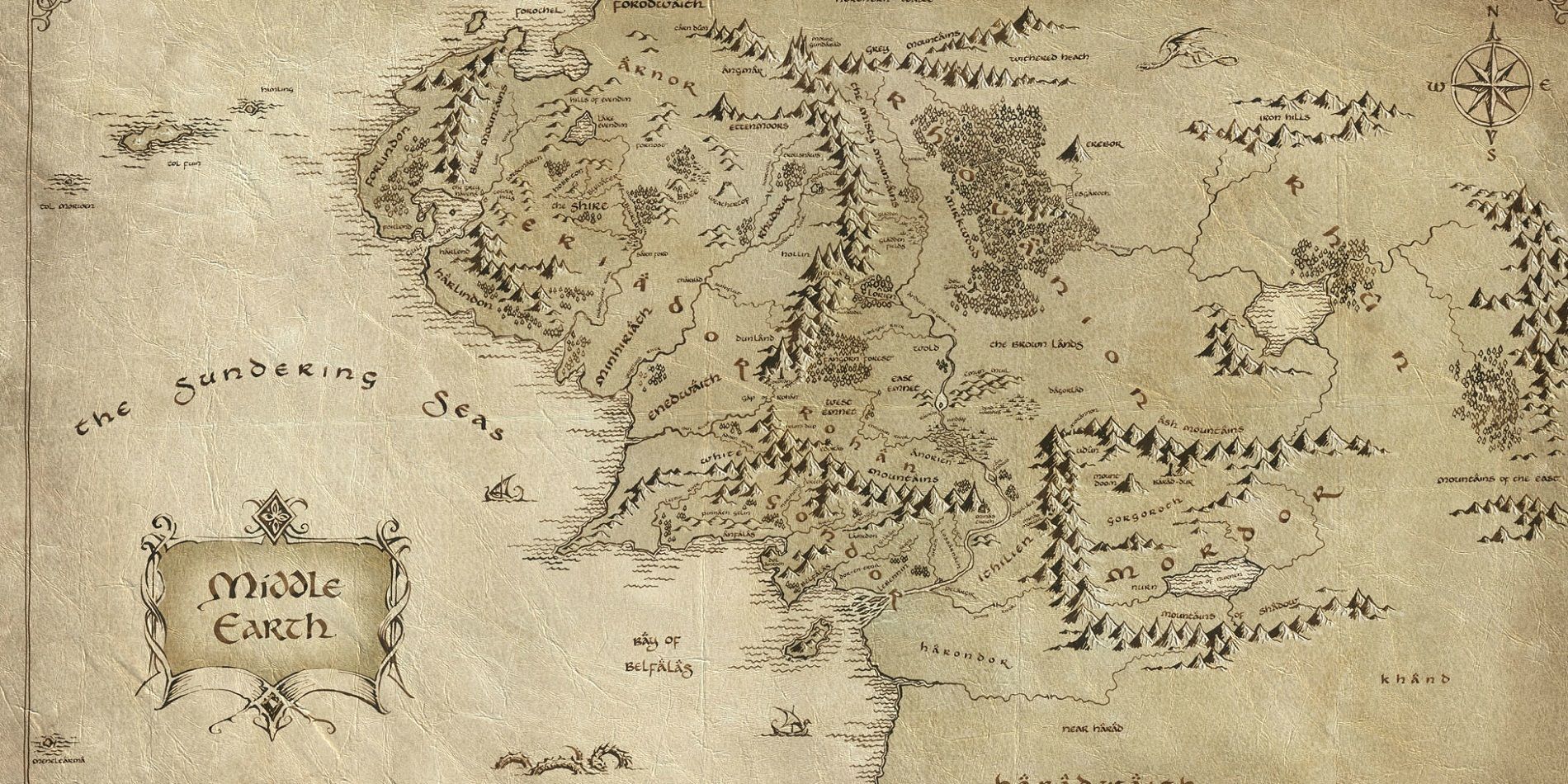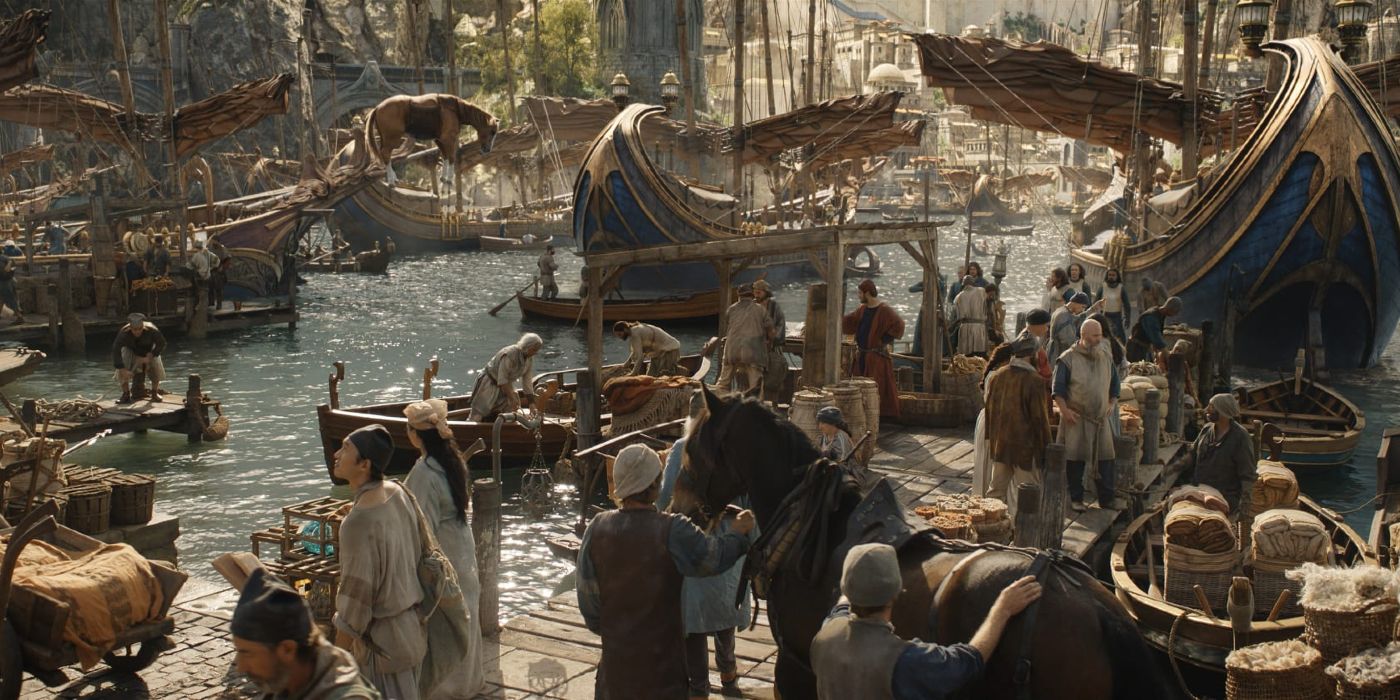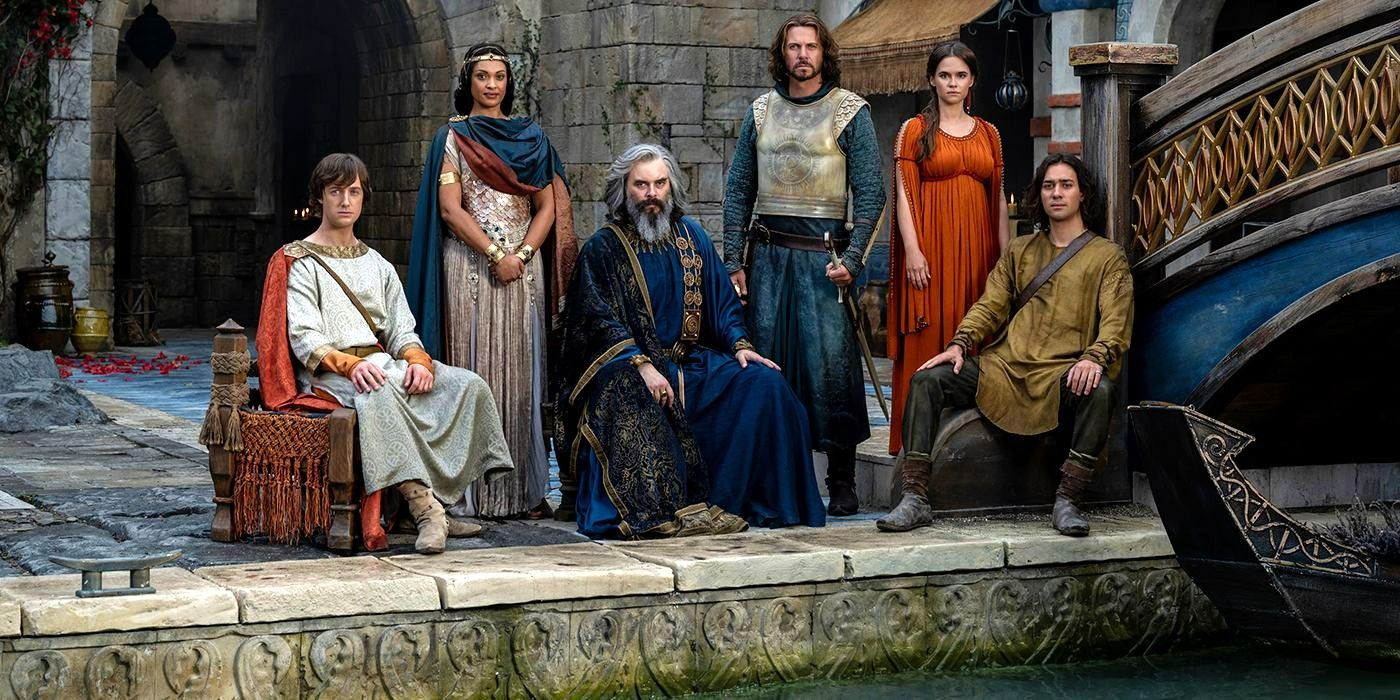
In The Rings of Power, Númenor is a somewhat removed kingdom from the halls of both elves and the men of the Southlands. The island itself was given to the Edain, three houses of men who stood by the elves in their battle against Morgoth, as a reward from The Rings of Power‘s deific Valar for their losses in the war. Since then, the elves and Edain have been close, exchanging knowledge and gifts as the Númenóreans became a mighty seafaring people until they suddenly cut contact with both the elves and the eastern shores of Middle-earth.
Númenor Is Located Between Valinor & Middle-earth
Númenor Is In An Island Kingdom In The Ocean Between The Two Continents










According to a map provided by Amazon Prime, Númenor lies about 275 leagues — or about 905 miles — west of the southern shores of Umbar. This places the kingdom 600 leagues, or over 2,000 miles, from the elven homestead of Lindon in The Rings of Power. In terms of Lord of the Rings-era mapping, Númenor would have been south of Gondor, even farther southeast of the trilogy’s location than far Harad (if it existed).
Meanwhile, the Valar’s ban on the Númenóreans sailing west for fear of their discovery of Valinor itself suggests that the island must be at least as close to the Undying Lands as it is to Middle-earth, even if it’s different from Lord of the Rings. Roughly, the island could be 100-200 leagues from Valinor’s coast, if not closer, considering that Galadriel ((Morfydd Clark) was able to swim partway to the kingdom’s shores.
Why Don’t People From Númenor Visit Middle-earth
Tensions Have Grown Between The Númenóreans & Elves

Although the people of Númenor were once close with the elves and, according to lore from The Silmarillion, once explored and created settlements in Middle-earth, it seems that the kingdom has grown increasingly isolationist in The Rings of Power. Firstly, while the Númenóreans are gifted with long lives, they are not immortal as the elves are, a fact that creates jealousy between the two peoples in Tolkein’s source material.
The Valar’s ban on the seafaring kingdom sailing west to Valinor also chafes on its leadership, as can be seen in the Queen Regent Míriel’s (Cynthia Addai-Robinson) prickly response when Galadriel says the elves and Valar gave the Númenóreans their island. These tensions are more than enough to inhibit the people of Númenor from visiting Middle-earth and their elven allies, and they’ve continued to grow throughout the Second Age of Middle-earth, leading to many of the political conflicts in Númenor.
Númenor Doesn’t Exist In Lord Of The Rings (But Its Descendants Do)
Aragorn Is Just One Example Of Men Descended From The Númenóreans

By the time of The Lord of the Rings, Númenor ceases to exist in the world. The fall of Númenor marks the end of the Second Age, and LOTR occurs at the end of the Third Age, so there are thousands of years between them. However, the Númenóreans settle in Middle-earth, founding the kingdom of Gondor. Aragorn is the chief example of a man descended from Númenórean blood, allowing him to live a prolonged life for a mortal man. Their culture and architecture can also be seen in Minas Tirith.
As far as the introduction of a newly-seen kingdom in The Rings of Power goes, Númenor has not disappointed in its intrigue and splendor. Tolkien buffs know that the island’s location in The Rings of Power plays a pivotal role in its eventual removal from Middle-earth as Lord of the Rings knows it, and the tension between the people of Númenor and Galadriel — and the political shifts it entails — are a fascinating aspect of the show. Regardless, only time will tell how these relations will impact Galadriel and Númenor itself.




